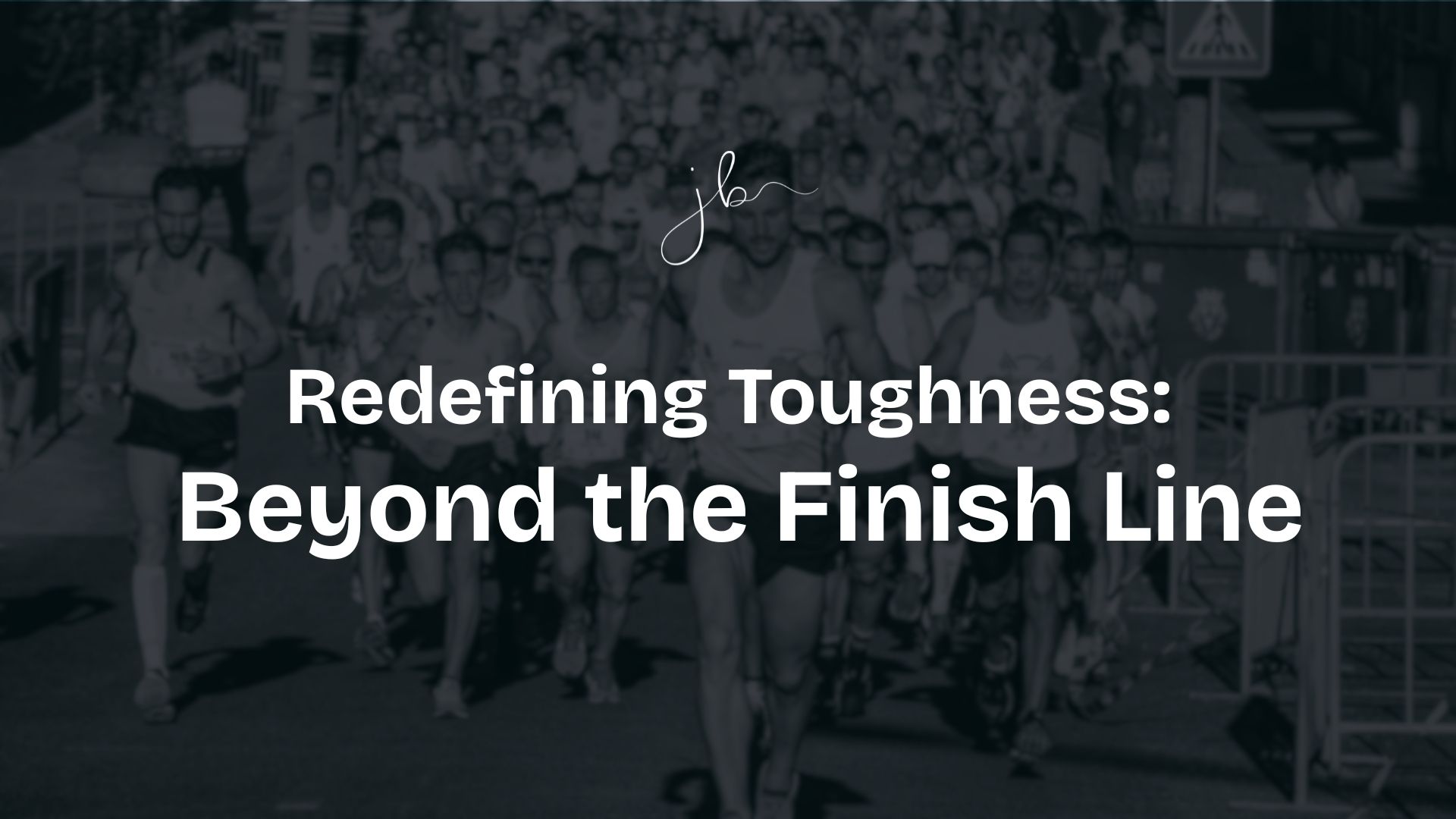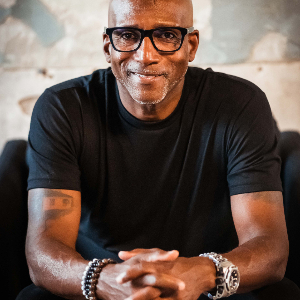Redefining Toughness: Beyond the Finish Line

When you hear the word tough, what comes to mind?
For a lot of us, it’s the image of someone powering through no matter what, gritting their teeth, ignoring pain, and pushing until they collapse across the finish line. That’s the story we’ve been told for years: toughness means never stopping, never slowing, never showing weakness.
But lately, I’ve been wondering if that definition sells us short.
I had a powerful conversation on the Just Human podcast with my friend Tyler Herman, a combat Marine and ultra-marathon runner who recently faced a very different toughness. Tyler took on the Ouray 100, a 102-mile race with nearly 43,000 feet of climbing. It’s considered one of the hardest races in the world, and he didn’t finish.
At mile 50, his calf gave out. His race ended.
And yet… his story might be one of the strongest examples of toughness I’ve ever heard.
The Old Definition: Toughness as Endurance
From locker rooms to boardrooms, toughness has long been defined by endurance. Ignore the pain, silence the doubts, and keep pushing.
That mindset is powerful; it helps Marines through combat and entrepreneurs through sleepless startup nights. But it also comes with risks. When toughness is only about pushing through, we risk injury, burnout, or worse.
Tyler put it well when he shared how, during the Ouray 100, he faced not just physical pain but a deeper emotional struggle. He described the voice on his shoulder saying, “You’re not good enough. You can’t do this.” That voice shows up in our lives, whether running a mountain trail, leading a business, or trying to keep our families together.
While traditional toughness often advocates ignoring self-doubt, Tyler's experience offers a fresh perspective: true bravery can lie in recognizing those doubts and seeking out a supportive network to propel you onward.
The Moment Toughness Redefined Itself
At mile 50, Tyler’s calf gave out, and his race ended with three big letters: DNF, Did Not Finish. Here’s the remarkable part: he didn’t see it as a defeat.
Instead, he saw it as a gift. “The failure is actually what you need,” he told me. That mindset shift is central to redefining toughness. It’s not about pretending setbacks don’t hurt. It’s about allowing failure to fuel growth. It’s about understanding that toughness isn’t just about enduring pain; it’s about learning from it, adapting, and coming back stronger.
The Role of Crew: No One Finishes Alone
One of the most powerful parts of Tyler’s story is how much credit he gives to his crew. These were friends, family, and fellow athletes who believed in him even when he doubted himself. They forced him to eat when his body shut down, reminded him of his strength, and pointed him toward the mountain when he wanted to quit.
He quoted an ultra-runner who said, “90% of these races are for the crew, 10% is for the runner.” Isn’t that true in life and leadership, too? None of us finishes alone. Whether building a business or facing a personal crisis, toughness isn't a solo act.
True strength is knowing who to invite into your corner and letting their belief carry you when yours runs out.
Toughness in Business and Leadership
You don’t have to run a 100-mile race to grasp this lesson. Every entrepreneur, executive, or parent has faced their version of mile 50, when the ascent ahead feels impossible, when self-doubt sneaks in, and when the finish line seems out of reach.
For small-business owners I work with as a Fractional CFO, that moment often arrives when money feels too tight, expenses surpass revenue, or the fear of failure overshadows the dream that started it all.
The temptation is to keep pushing blindly, work longer hours, take on more debt, grit your teeth, and hustle. But redefining toughness involves pausing, gaining perspective, and building a “crew” of tools, mentors, and systems that help you climb smarter.
Beyond the Finish Line: What Really Matters
Tyler shared that he runs with the names of 31 Marines who lost their lives in service. For him, toughness isn’t just about proving he can finish a race. It’s about carrying their memory, showing their kids what perseverance looks like, and choosing growth over ego.
That’s a lesson we can all take. Because beyond the finish line, beyond the external accolades, toughness is about:
- Resilience: Getting up after setbacks, even when no one is watching.
- Vulnerability: Being honest about our doubts and fears.
- Community: Surrounding ourselves with people who lift us higher.
- Purpose: Remembering why we’re running in the first place.
We find strength far beyond a single race, quarter, or career milestone when we anchor toughness in these values.
Why This Matters Now
In today’s world, “resilience,” “mental toughness,” and “overcoming failure” are more than just buzzwords. They are the most searched leadership and personal development terms on Google. Leaders, athletes, and everyday people seek frameworks to manage doubt, stress, and setbacks.
Your Next Step: Redefine Toughness for Yourself
Toughness isn’t about ignoring pain or pretending failure doesn’t exist. It’s about using setbacks as stepping stones, leaning on the right crew, and remembering that being human comes first.
If you’re ready to take the next step in your own leadership and resilience journey, here are some resources to help:
- Take the Free Quiz to discover your financial and leadership blind spots:
👉 alignedimpact.scoreapp.com - Register for my Live Webinar and learn practical tools for building clarity and resilience:
👉 jayboykin.com/webinar - Enroll in the Digital Course (Beta) for small-business owners ready to scale with clarity:
👉 jayboykin.com/beta - Curious how AI can streamline your workflow? Try my affiliate partner Ro.am:
👉 ro.am/camp/go/just_human
Toughness isn’t just about crossing finish lines; it’s about redefining what matters most so that when the race ends, you’re not just stronger; you’re more fully human.
SUBSCRIBE FOR WEEKLY INSIGHTS
Don't miss out on updates, new podcast episodes, and valuable insights from Jay. Subscribe and join his newsletter community for thought-provoking discussions and tips on fostering a human-centric workplace culture.
We hate SPAM. We will never sell your information, for any reason.



